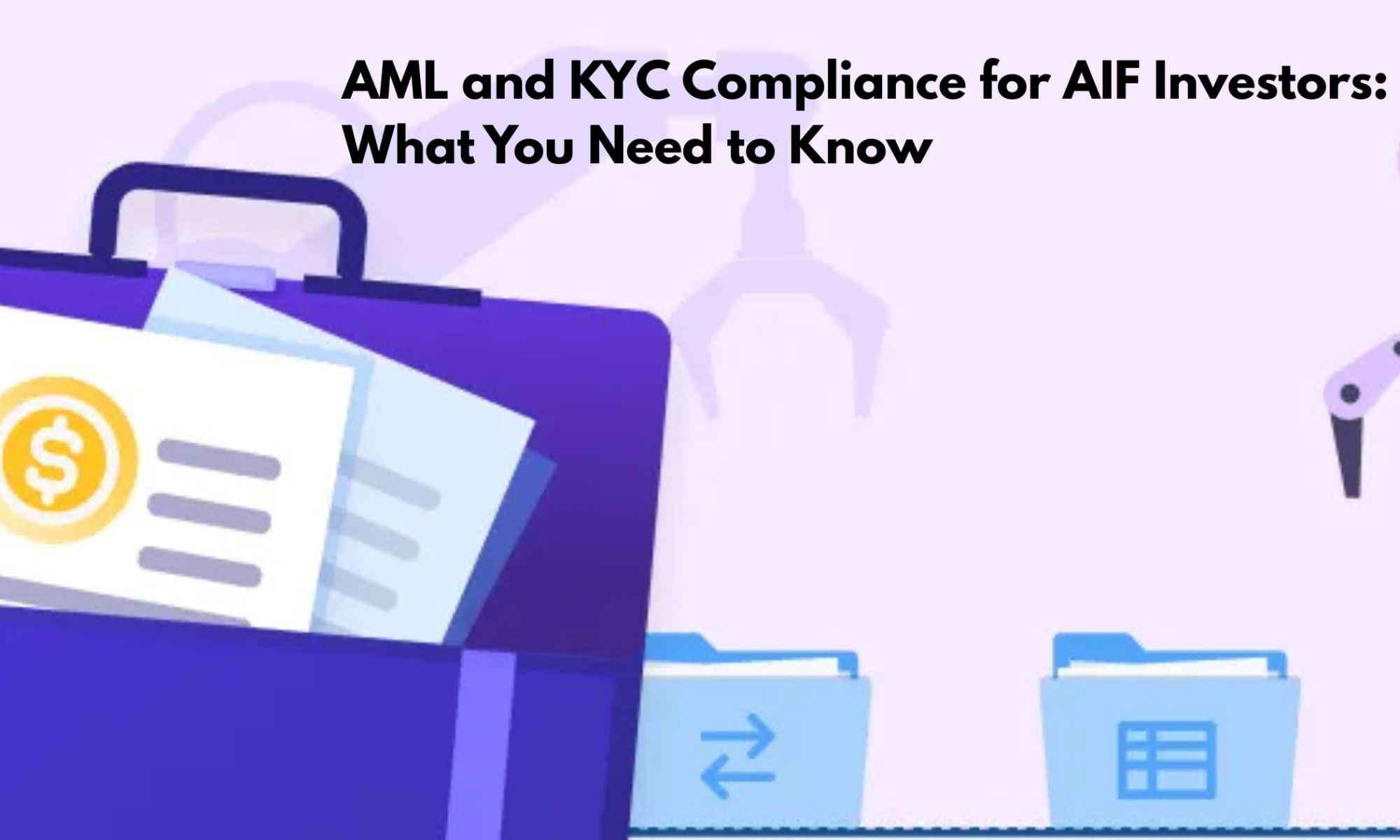As India’s investment landscape continues to evolve, Alternative Investment Funds (AIFs) have emerged as a popular vehicle for sophisticated investors seeking diverse portfolios and higher returns. However, alongside the growing interest in AIFs, regulatory scrutiny has also increased—especially concerning AML (Anti-Money Laundering) and KYC (Know Your Customer) compliance.
Whether you’re planning to invest or considering Online AIF Registration in India, understanding AML and KYC obligations is essential to ensure legal compliance and maintain investor confidence.
What Are AML and KYC Regulations?
AML refers to the set of procedures, laws, and regulations designed to prevent the generation of income through illegal actions, including market manipulation, corruption, and terrorism financing.
KYC, on the other hand, involves verifying the identity of clients to assess and monitor risk. This is a foundational step for financial institutions, including Alternative Investment Funds (AIFs), to prevent fraud and financial crimes.
Together, AML and KYC policies help safeguard the integrity of the financial ecosystem by ensuring that only legitimate investors and capital flows participate in the fund environment.
Why AML and KYC Are Critical for AIFs
AIFs often cater to high-net-worth individuals, family offices, and institutions. As such, they attract not just strategic investments but also potential misuse for unlawful purposes if unchecked. Here’s why AML and KYC compliance is critical:
- Regulatory Requirement: SEBI mandates all AIFs to follow strict AML and KYC protocols under the Prevention of Money Laundering Act (PMLA).
- Reputation Management: Non-compliance can damage the reputation of fund managers and lead to investor distrust.
- Investor Due Diligence: Proper verification ensures that the fund only deals with credible investors.
- Global Standards: Many AIFs attract foreign investment; thus, adhering to international AML standards boosts credibility.
AML and KYC Process for AIF Investors
Whether you’re an investor or a fund manager involved in Online Alternative Investment Fund Registration in India, here’s what the typical AML and KYC compliance process includes:
1. Client Identification
- Collection of PAN, Aadhaar, passport, or equivalent government ID
- Corporate investors may require company incorporation certificates and authorized signatory details
2. Address Verification
- Utility bills, bank statements, or registered lease documents
3. Source of Funds Declaration
- Investors must disclose how the investment capital was sourced, ensuring it is legitimate
4. Ongoing Monitoring
- Regular reviews and transaction monitoring to detect any suspicious activity
5. PEP Screening
- Politically Exposed Persons (PEPs) undergo additional scrutiny to prevent misuse of public funds
Role of AIF Registration Consultants in Ensuring Compliance
For those navigating the process of AIF Registration Online in India, engaging with an experienced AIF Registration Consultant is strongly recommended. These experts:
- Help draft compliance-ready documents
- Ensure AML/KYC policies are in line with SEBI requirements
- Assist in setting up internal systems for ongoing compliance
- Facilitate seamless communication with regulatory bodies
Their involvement can significantly reduce the risk of delays or rejections during the Alternative Investment Fund Registration in India.
Technology-Driven KYC for Online AIF Registration
Digital advancements have revolutionized compliance processes. With Online AIF Registration in India, many steps such as e-KYC, video KYC, and digital signatures have simplified investor onboarding.
Moreover, digital tools can automate:
- Document validation
- Background screening
- Periodic investor reviews
This not only boosts compliance but also enhances investor experience and speeds up the registration cycle.
Conclusion
For investors and fund managers alike, AML and KYC compliance are not just regulatory checkboxes—they are fundamental pillars that uphold the credibility and sustainability of India’s AIF ecosystem. As AIFs grow in popularity, ensuring robust compliance frameworks becomes even more essential.
If you’re looking to initiate your AIF Registration Online in India, partnering with a trusted AIF Registration Consultant will ensure your fund is not just compliant, but also investor-ready from day one.

